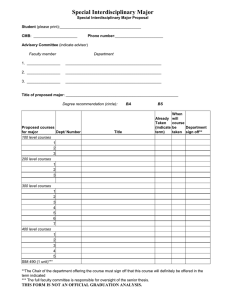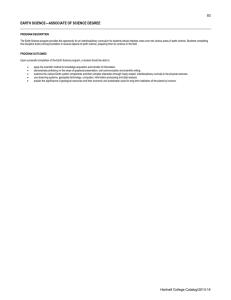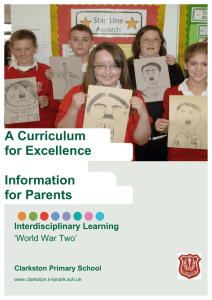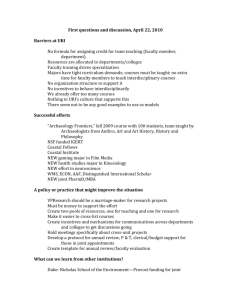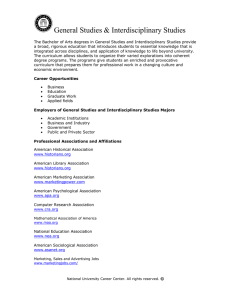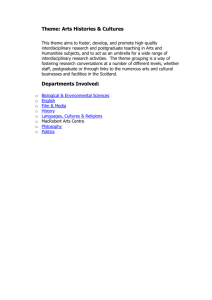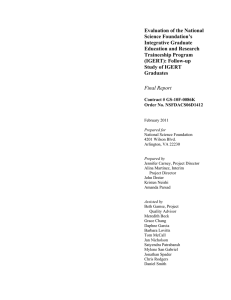The IGERT Program Preliminary Proposals June 2008 Carol Van Hartesveldt
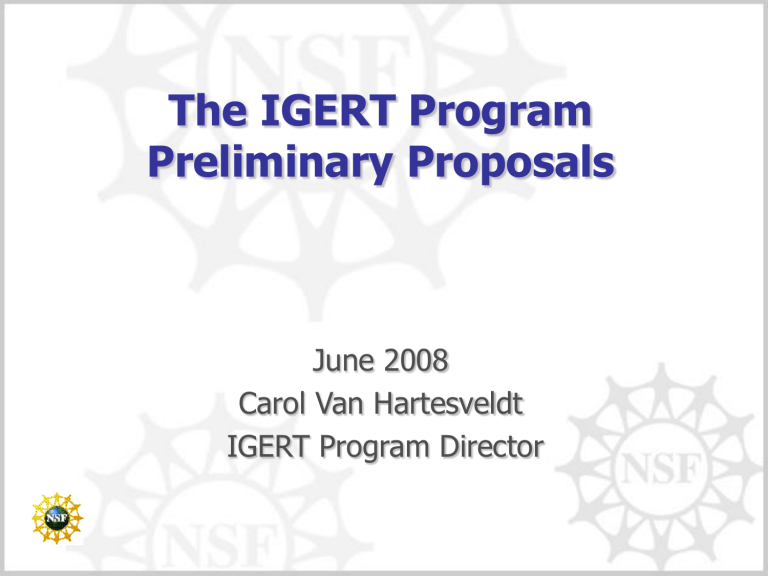
The IGERT Program
Preliminary Proposals
June 2008
Carol Van Hartesveldt
IGERT Program Director
IGERT Overview
Proposals submitted to the IGERT program must describe integrative, research-based, graduate education and training activities in emerging areas of science and engineering .
The IGERT project should be organized around an interdisciplinary theme and involving a diverse group of faculty members and other investigators with appropriate expertise in research and teaching. The interdisciplinary theme provides a framework for integrating research and education and for promoting collaborative efforts within and across departments and institutions. Students should gain the breadth of skills, strengths, and understanding to work in an interdisciplinary environment while being well grounded with depth of knowledge in a major field.
In contributing to a diverse science and engineering workforce for the future, the IGERT project must include strategies for recruitment, mentoring, and retention aimed at members of groups underrepresented in science and engineering, including women, racial and ethnic minorities, and persons with disabilities.
The graduate experience should contribute to the professional and personal development of the students and equip them to understand and integrate scientific, technical, business, social, ethical, and policy issues to confront the challenging problems of the future.
As an opportunity for faculty to experiment with new approaches to graduate education, the IGERT project should provide students with experience relevant to both academic and nonacademic careers.
This may involve such activities as internships and mentoring in industrial, national laboratory, academic, or other settings.
Globalization of research and career opportunities places importance on providing students with an international perspective. This may be gained through programs within the institution, or through strongly integrated, collaborative research experiences and/or fieldwork at foreign institutions and sites.
Summary Points to Remember
Read and re-read the Solicitation
Proposal requirements and review criteria
Be sure to address each section required
Get input from all involved EARLY
Be sure all disciplines involved fully contribute
Be sure to clearly integrate and articulate
Exceptional value of the interdisciplinary science research to be done with the interdisciplinary educational curriculum (Intellectual Merit) and the
Inclusion and broadening participation (Broader
Impacts)
Address challenges or risks
Agenda
The Review Process
The Preliminary Proposal by Topic
Project Summary
Vision, Goals, and Thematic Basis
Major research efforts
Education and training, including recruitment, mentoring and retention and international awareness
Institutional commitment
Other resources and connections
Recent traineeship experience
Supplementary Documentation
Review Process: IGERT
Preliminary Proposals
Multiple interdisciplinary panels
No standing panels
High demand (400-450 proposals in recent years)
High Priority 15%; Medium priority 20%
About 80-100 invitations for full proposals
About 20 awards
Project Summary
First impression for reviewers
Avoid excessive background information
Be specific and clear about the goals, focus and value-add of your IGERT
Independently and explicitly address
Intellectual Merit
Broader Impacts
Include key words
Vision, Goals, and Thematic Basis
Set the stage
Interdisciplinary theme
Vision, overview and need for this integration
Why it is important to train graduate students in this emerging area
Value-add
Why this collaboration of disciplines, individuals, constructs, institutions, etc., is important
Why it will work
Major Research Efforts
Interdisciplinary research in science/technology/engineering/math
Science/engineering: cutting edge; in emerging areas
Why this is important and will hangtogether/integrate as a theme
Project future interdisciplinary research collaborations
Topics
Faculty collaborators
Education and Training
In the context of the interdisciplinary research theme – for consideration…
What is novel and innovative?
What level of facility in the various disciplines in required for trainee success?
How will trainees in familiar/facile with the left behind!) all the disciplines involved become all disciplines involved? (No trainee
What will each element contribute, and why is it important?
What faculty will be responsible, and are they on board?
Evidence of your careful planning and integration
How will trainees gain an appreciation for the globality of the science?
How will you recruit, mentor, and retain trainees?
Recruitment, Mentoring, and
Retention
Evidence of careful planning
Plans for all students
Plans for groups underrepresented in science and engineering
Using what you have – will it work and be enough?
Look critically at what you have
Plans tailored to your proposed IGERT
Partnerships documented with letters
Recent Traineeship Experience
Experience with ANY graduate traineeship program, NSF or other
Renewal proposals
Outcomes of previous award
Added value of potential new award
Do not provide results of traditional
NSF-supported research projects
Supplementary Documentation
Limits on letters
Up to 5, with one internal from senior level administrator
No paper documents accepted
Content of letters
Explicit in solicitation
Give this information to letter-writers
Negotiate early with your institution
Summary
It’s all about integration: emerging science, excellence in training and education, engaging and enfranchising a broad participation and preparation for 21 st century global careers and contribution…
21 st Century Global
STEM Careers
Emerging
RESEARCH
Interdisciplinary
EDUCATION
Broadening Participation
